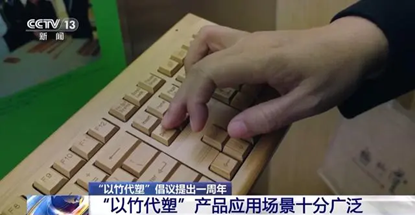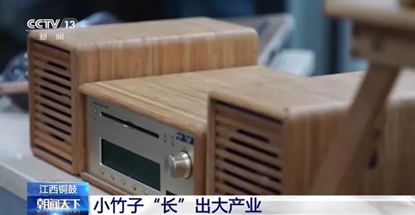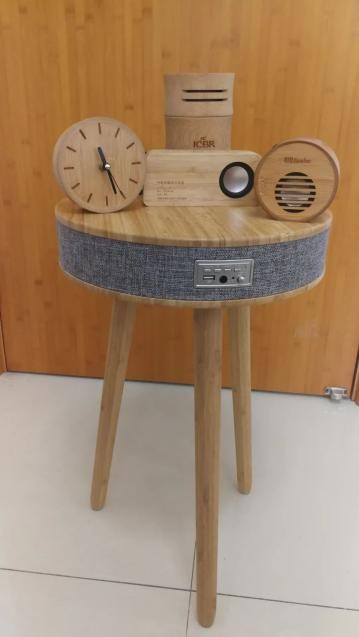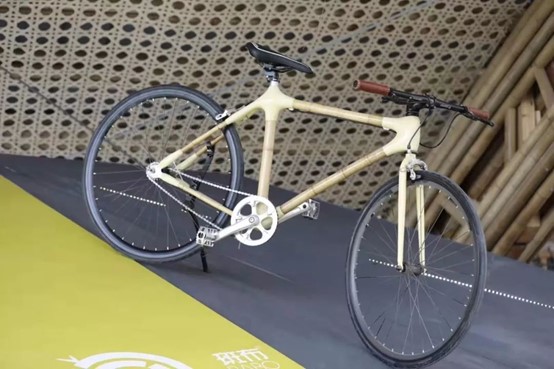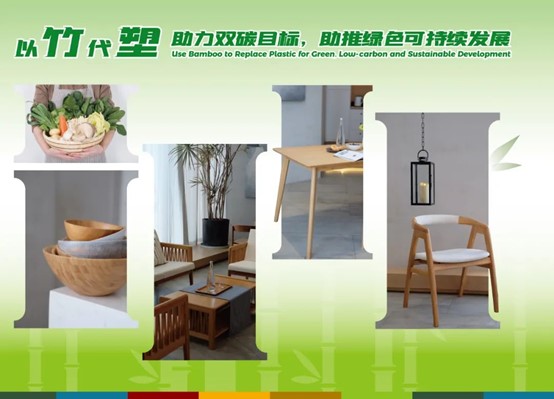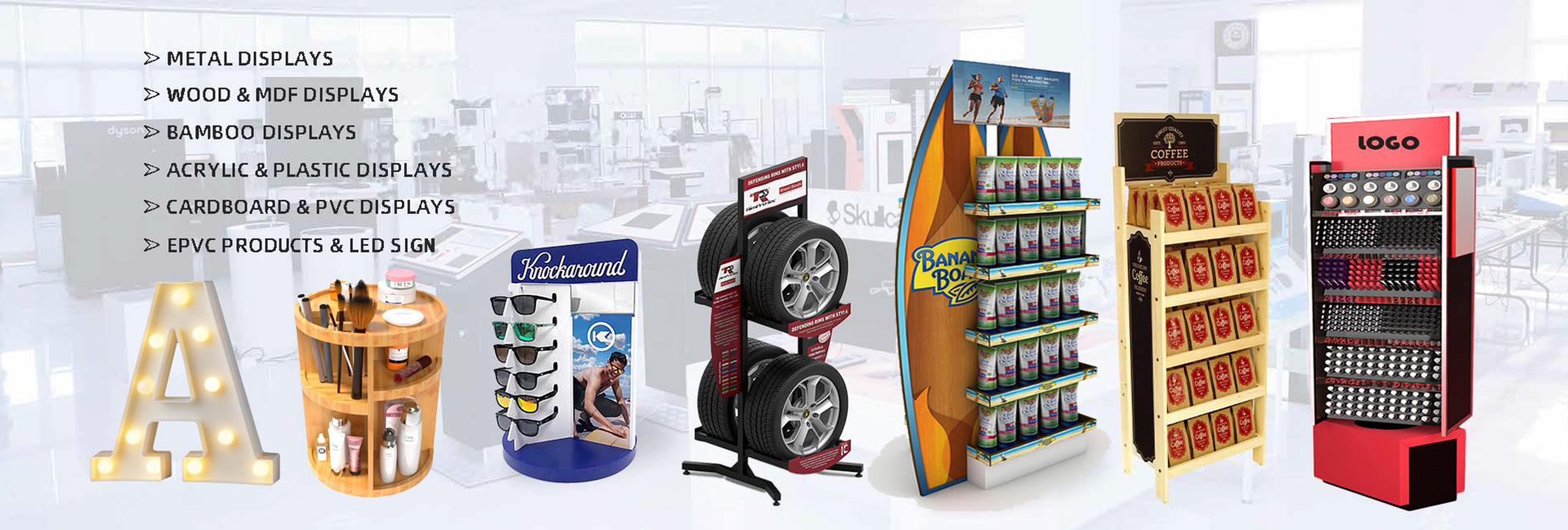Replace plastic with bamboo丨Have you got the hidden value of bamboo?
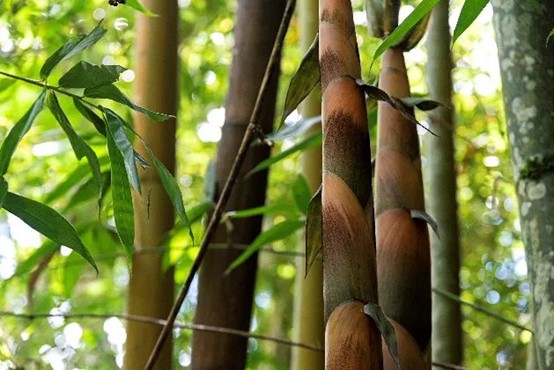
Bamboo grows quickly and has many uses. Disposable and durable plastic alternatives produced from bamboo are not only low-carbon and environmentally friendly, but also biodegradable.
In recent years, as bamboo processing techniques and technologies have become increasingly mature, the application scope of bamboo products has continued to expand, and their safety performance and quality have also been greatly improved, making them more market competitive than plastic products.
The production of plastics cannot be separated from fossil energy, and bamboo products are made from biomass materials, which means that bamboo products can be recycled, have a low carbon footprint, and have a relatively small overall impact on the environment.
Bamboo can self-renew after being harvested and can be harvested again after three to five years. The use cycle of bamboo products is much longer than the time required for bamboo to mature from shoots to maturity. Therefore, bamboo is very consistent with the requirements of the development of circular economy. In addition, bamboo can grow on degraded soil and slopes without occupying basic farmland.

Bamboo is a treasure all over the body, from the pole to the roots, shoots, twigs and leaves, the whole bamboo can be utilized. Bamboo value chain production can basically achieve 100% waste-free utilization.
Most bamboo products not only use less or no synthetic materials such as resins, glues or laminates in the production process, but can also be recycled and reused at the end of their life cycle, making them perfect circular economy materials. To take a step back, even if bamboo products use some synthetic materials, their carbon footprint and ecological cost are still lower than those made of materials such as PVC, aluminum and steel.
Disposable plastic products
Pollution and hygiene issues caused by the production and use of single-use plastics have attracted global attention. Single-use plastics are produced almost entirely from fossil energy and are a significant contributor to climate change. The recycling rate of disposable plastic products is extremely low. Only a small amount is recycled every year, and most of them are disposed of in the form of garbage and are distributed around the world. The harmful particles and chemicals produced by some plastic waste are very harmful to the health of humans and wildlife. Currently, more than 120 countries have passed bans on single-use plastic products.
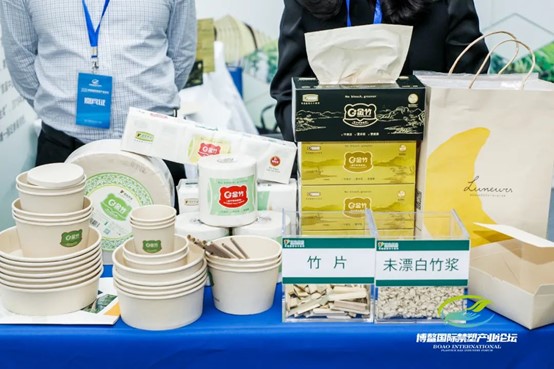
Bamboo products are produced from non-fossil energy, are recyclable and can replace a large number of disposable plastic products, such as straws, knives, forks, spoons, chopsticks, cups, bowls and food packaging.
Knives, forks, spoons and other products can be made from a single piece of bamboo without the use of any adhesive. Products such as bamboo plates, bowls and cups often require the addition of adhesive to press the bamboo into shape. In order to facilitate product recycling, some companies are trying to develop biomass adhesives or make bamboo tableware through methods such as hot pressing technology.
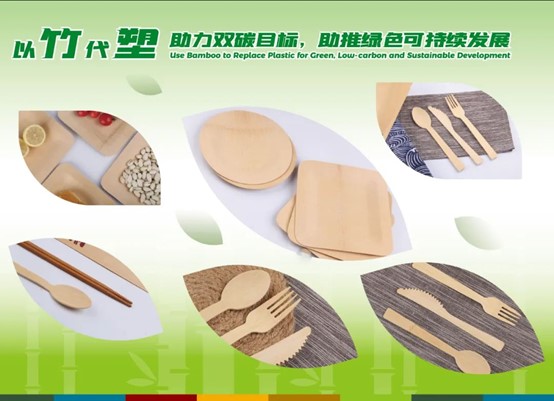
Durable plastic products
In addition to disposable items, bamboo can be used to make durable goods such as keyboards, skateboards, flooring, furniture, building materials, wind turbine blades and drainage pipes.
